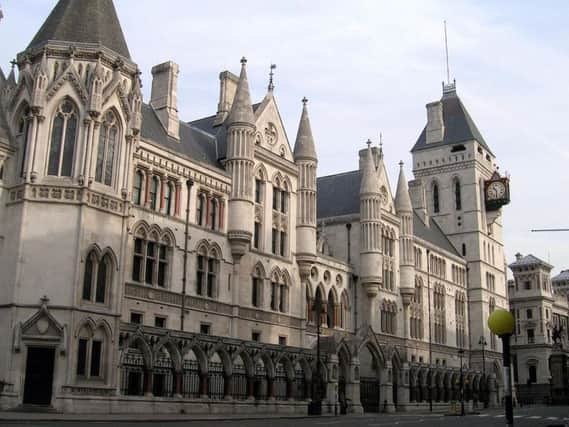Widow's claim on £3.2m Northamptonshire estate quashed in High Court ruling


After his death in 2005, Joe Sargeant – a farmer from Grafton Regis and former WWII Lancaster Bomber pilot – left all of his £3.2 million estate in a discretionary trust to his widow Mary, daughter Jane and her three children.
But in 2016, Mrs Sargeant issued a claim against the estate – which included a large farm between Milton Malsor and Collingtree – complaining that the will hadn't made adequate financial provisions for her and she was now struggling financially.
Advertisement
Hide AdAdvertisement
Hide AdThe High Court has now rejected Mrs Sargeant’s claim, saying that the evidence indicated that she had fully understood the will and had until now gone along with what had been agreed between the family and her co-trustees.
Similar types of claims tend to be made within six months of a will being accepted as a valid public document, but Mrs Sargeant's complaint 10 years after her husband's passing prompted the court to question why she hadn’t acted sooner.
Mr Sargeant's daughter Jane said: “After a couple of years of arguments, I’m relieved to see my father’s estate preserved in its entirety for my children, two out of three of which have attended agricultural college.
"It’s never a nice thing for families to fall out but in our case, following through on the intentions set out in dad's will took number one priority.
Advertisement
Hide AdAdvertisement
Hide Ad"Keeping our farm within the Sargeant family and fully operational was something my father wanted very much and this decision is exactly what we were hoping for."
In a discretionary trust, the beneficiaries have no fixed entitlement to the contents of the trust and it is left up to the trustees – in this case Mrs Sargeant herself, Jane Sargeant, and the family solicitor – to decide who receives which assets and capital.
Discretionary trusts are often used to avoid splitting up complicated assets after death and to provide for the beneficiaries fairly. Mr Sargeant had hoped that using this method would provide flexibility for the family and allow the continued operation of the farm.
"Whilst Mr Sargeant intended to ensure long-term provision for family members by keeping the estate in one piece, there was no way of knowing a family fall-out was on the horizon, leading to further claims on his estate," said Andrew Wilkinson of law firm Shakespeare Martineau, who acted for Jane Sargeant.
Advertisement
Hide AdAdvertisement
Hide AdThe Sargeant estate had been the subject of another High Court ruling in 2007 after Mr Sargeant's sister Hilda Reece sold her share of land (potentially worth £13.5 million) to her brother for £10,687.
The deal was quashed after a four-day hearing during which the court heard of the agreement over the family land, made in 1995.
Mr Sargeant maintained the siblings' agreement after the dissolving of their partnership meant he had acquired all of Mrs Reece's interest including 45 acres near Collingtree, known as the Crem Land.
But Mrs Reece's case was that the agreement did not reflect the true "common intention" of herself and Mr Sargeant, as she had not realised the Crem Land – given an estimated development value of £13.5 million a year – was included in the agreement.
Advertisement
Hide AdAdvertisement
Hide AdJudge Edward Bartley Jones QC found in favour of Mrs Reece, saying she should be given a half share of the land again, and he added that, despite the multi-million pound dispute, the brother and sister drank tea together daily and lived in a "parallel universe" from their lawyers' legal arguments.
He said: "While the professionals were writing letters to one another, getting into an increasingly complex series of discussions and negotiations, Joseph would visit Hilda almost daily for a cup of tea in the afternoon after he had finished farming.
"There are clear indications that the professionals were conducting Joseph and Hilda's affairs in a separate, and parallel, universe from the one in which Joseph and Hilda were conducting their own relationship."
Judge Bartley Jones described the siblings as "strong-willed" and "obstinate", and said the fall-out from the 1995 agreement would have "fractured any ordinary commercial relationship", but that the two had remained friends throughout.